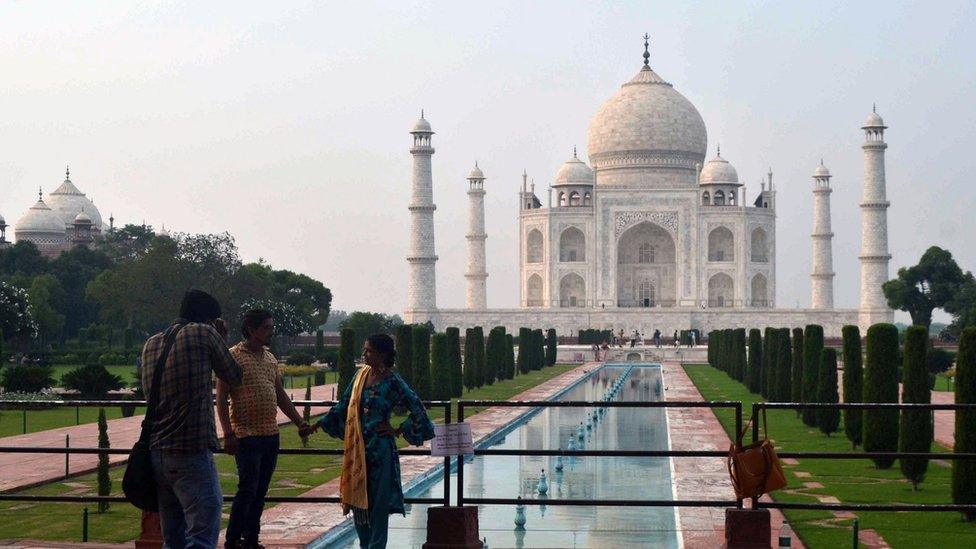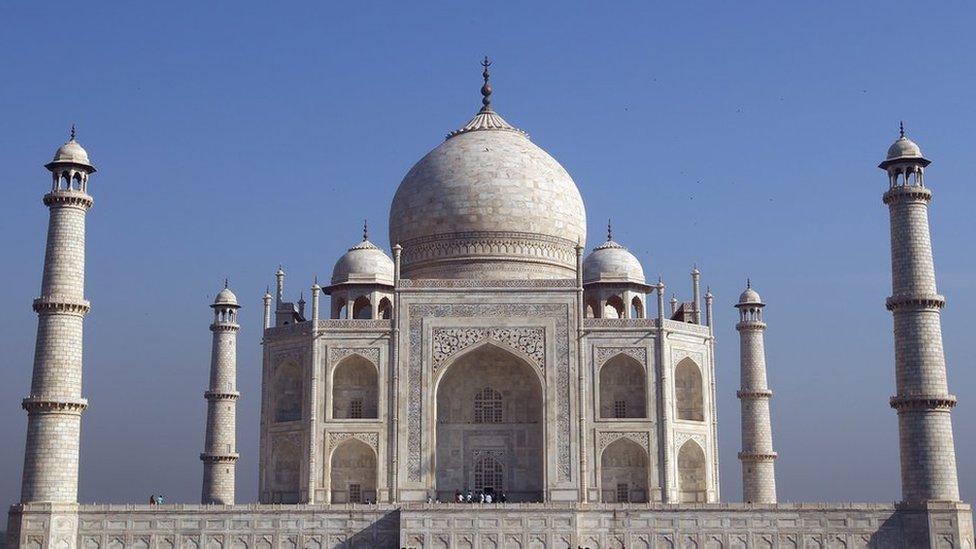Indian PM Modi inaugurates metro to help curb Taj Mahal pollution
- Published

India's supreme court has accused the government of failing to protect the Taj Mahal
Indian Prime Minister Narendra Modi has inaugurated a metro project aimed at curbing the impact of air pollution on the Taj Mahal.
The rail network, in the northern city of Agra, will connect the 17th Century monument and other historic sites with railway stations and bus stops.
It's estimated the project will cost Rs 8,379.62 crore ($1.1bn; $854.2m) and take five years to complete.
The Taj Mahal is one of the world's leading tourist attractions.
It draws as many as 70,000 people a day.
Taking part in a virtual ceremony, which was broadcast on Twitter, external, Mr Modi said that the scheme includes 10 million houses for low-income residents.
He also highlighted his government's efforts to modernise rail networks nationwide.
In 2018, India's Supreme Court criticised the government for a "failure" to protect the historic site.
During May that year, the court had instructed the government to seek foreign help to fix the "worrying change in colour" of the structure, which was built under the rule of Mughal Emperor Shah Jahan.
Pollution and insects are among the factors to blame
The court concluded that the Taj Mahal, constructed from white marble and other materials, was turning various shades of yellow, brown and green. Pollution, construction and insect dung are said to be among the causes.
Constant cleaning required to maintain the building's original colouring has since worn away at the delicate stonework.
Related topics
- Published11 July 2018
